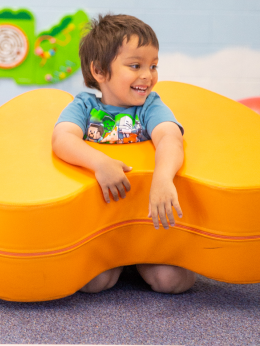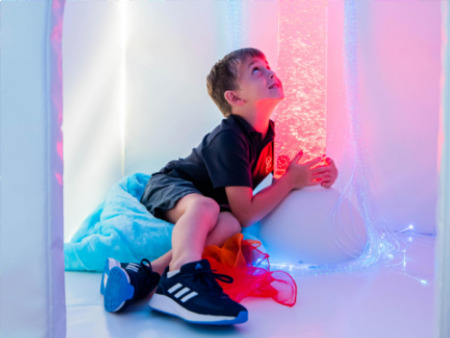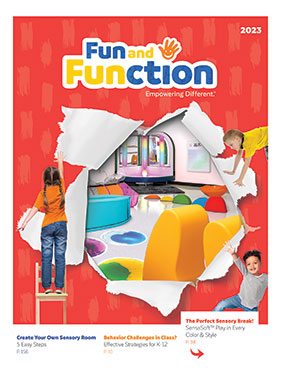"My son has meltdowns in a crowd or around guests. Help!"
– Mom of 9-year-old
Meltdowns are common with young children as well as children with sensory and behavioral differences. And yes, they are difficult to manage depending on where you are, when they occur and the severity. As children get older, meltdowns can become even harder to manage and more embarrassing, especially when onlookers are not aware of your child's special needs.
In the case of the mom who wrote about her son, the meltdown may be symptomatic of anxiety stirred by engaging and socializing with unfamiliar people. Let's consider a few strategies that may help.
Heads Up and Communicate
Give your child plenty of warning before company arrives or before you head out for a visit. A visual timer may help as well as self-expression tools. Explain why it is valuable for each of you to have this special time with other people, and keep the message clear and consistent. Encourage your son to express his concerns and be a good listener. You don't have to fix his concerns but let him know you hear him and empathize with him.
Sensory Activity
It may be a good idea to offer your child a sensory activity before visitors come. It can be time on a swing, jumping, rocking, exercise, playing with a ball, or heavy work for hands with putty or sand. An art activity can also be engaging and yet calming. If you have a sensory area, you can suggest some down time in the sensory environment before the company arrives. Even chores can be helpful. My favorite is washing dishes. If you are hosting, your child can help with washing dishes as they get dirty so he or she is involved without having to sit around and talk.
Eliminate the Electronics
Electronics are energy zappers. When working with clients, I always suggest to parents to turn off all gadgets at least 15 minutes before a therapy session. It is too hard for kids to go from being "zoned out" to "zoned in." In lieu of the electronics, you can play a social game, have your kids help set up for the guests or read a child-friendly book on how to treat a guest.
Time to Socialize
Let your child know that he can stay near you when the guests arrive. If after sometime he'd like to step away, that is fine too. Be sure to show him how to introduce himself and, even if he is non-verbal, take him to each guest to say hello. Remember, this is a learning experience for everyone.
Sensory Tools
If your child needs a fidget, weighted vest or sensory tool to keep on hand while guests are visiting, then encourage him to choose what's helpful. By having a means to regulate his responses, he may be able to stick around longer while feeling more secure.
Reward and Regroup
Be sure to talk to your child after everyone leaves. Maybe there is something funny that happened. Or maybe someone was very loud. This is not necessarily a time to complain, but a time to regroup and discuss how he felt and reassure him that he has made great strides. Be sure to point out anything positive from the experience especially as it relates to him. If he had five minutes of calm, then point it out.
No need to exaggerate, but focus on the positive. Over time you may see there are more positives than negatives in your child's socializing time.
Check out our collection of social emotional learning tools.























Comments